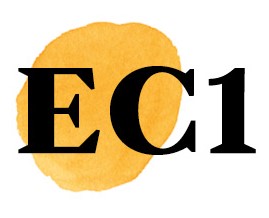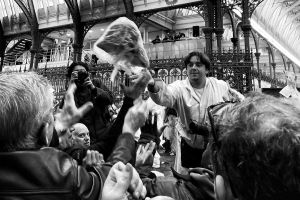An investigation by Matt Ingham

Nine years ago, Nathaniel left Wakefield, West Yorkshire, for Islington in hopes of finding a better life – more opportunities, a job, maybe even a family. Last Thursday, he slept on the pavement, just off Angel High Street, which has become his usual spot over the last few years, whenever he’s between sheltered and temporary accommodation.
Islington council describes the borough as “vibrant and diverse”, with a “good supply of local jobs”, with one study finding residents’ average income to be between £48,100 and £63,200 – an approximate £15,000 above the national average. Yet, somehow, the Index of Multiple Deprivation (IMD), which uses a range of factors to determine disparity across local authorities, found Islington to rank 53rd most deprived, out of the 317 total local authorities across England. Leading nationwide housing support charity, Shelter, found that one in every 112 people in the borough were homeless on any given night in 2022. This totals up to 1929 people overall, of which 858 are children. How is it that an area of such wealth and prosperity, boasting some of the highest property prices in the country, can also have such huge problems with poverty and deprivation?
“It’s always been tough”, Nathaniel admitted, “the whole cost of living thing has just made things tighter… you get less support from people… and there’s even less ways to get out of the cycle for [homeless people]. He praised the support of Islington council, who boast robust and extensive plans for supporting those who find themselves homeless. A local authority study found that, of the 96 recorded rough sleepers in the borough in 2023, only 26 of those faced a second consecutive night, and only two of those joined the semi-permanent population of those living on the streets. The council’s concern for rough sleepers is also on the rise, as climate change is causing much colder, wetter winters. This is a concern reiterated by Nathaniel, whose thin blanket and old raincoat don’t stand a chance against a cold and rainy night: “[the cold] can just be unbearable, means we end up turning to drugs and alcohol, not because that’s what we want to be doing, but we just want to stay warm”. In 2023, 66% of recorded rough sleepers in the borough required support for drugs, alcohol and mental health.
Islington council works tirelessly to put a stop to situations like Nathaniel’s, but Highbury ward Green Party councillor, Benali Hamdache admits that “rents in Islington have become steeper and steeper” leaving too many households “only one rent payment away from becoming homeless”. He blames the national government for “forcing [local councils] to do more with less”, telling EC1 Echo that “[Islington] council are really at the sharp end of dealing with a lot of national policy”.
With inflation and financial hardship making the renters’ market evermore challenging, Hamdache believes that, “[the council] see more homeless people on the streets of Highbury than they used to”. Through their regular street audits, they’ve identified patterns of rough sleeping around the tube stations in the borough, such as Angel Underground Station, and Highbury and Islington.
Chidi, a Transport for London (TfL) duty station manager, admitted that “[TfL station staff] don’t really have much involvement, we’ll just leave it because [homeless people] aren’t really doing any harm”. However, “sometimes customers will complain about begging, or [homeless people] seeming drunk or unwell”. In a recent TfL press release, they advised customers who are “concerned about someone sleeping rough” to “visit the StreetLink website”. StreetLink is an online service created by Home Connections, where the public can alert local authorities to rough sleepers who may be in danger.
Hamdache believes that council efforts, like hardship funds, temporary accommodation and income maximisation advice are “steps forward”, but admits that they’re just a “dam against a surging wave, growing bigger by the month”. “Councils have limited power to be able to fix homelessness”, and Hamdache fears that, “things potentially are only going to get worse… unless something changes with the national government”. This means there may still be a long road ahead for people like Nathaniel.
Nathaniel “[doesn’t] know if [he’ll] ever get off the streets”. “It can just be really dark and really difficult… I don’t want to be out here asking people for money, asking people for food, but there actually isn’t any other option for people like me, is there?”









